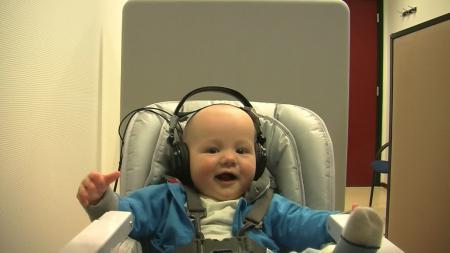
Scientists used to think babies only understood words from around one year onwards.
But increasingly, research suggests infants as young as six months old have some grasp of the words used around them.
"Language is definitely developing furiously under the surface,” said Professor Elika Bergelson of Duke University, the lead author of the new study published in PNAS.
To test babies’ word recognition skills, the scientists used eye-tracking devices to monitor them while they were presented with images on a screen, and while their caregiver spoke to them.
In previous work, Professor Bergelson used this setup to demonstrate that babies aged six to nine months could understand what was meant by words for food items and body parts. When the caregiver read out a word like "apple”, the babies tended to direct their gaze to the relevant image.
This new study suggests that the babies’ repertoire is even more diverse. The babies were presented with two images that were either related or unrelated. Related images included foot and hand, while unrelated images might be foot and milk carton.
When their caregivers read one of the words, the babies spent more time looking at the relevant image when it was clearly unrelated to the other image in the pair.
The babies were able to tell that "car and stroller”, for example, are more alike than "car and juice”.
While the study doesn’t suggest babies appreciate the "full-fledged adult meaning”, these findings suggest a basic understanding of a range of words, and that babies appreciate the relative similarity of certain words.
"This study is an exciting first step in identifying how early infants learn words,” said Professor Sandra Waxman, a child development researcher at Northwestern University who was not involved in the study.
"Even in the very early stages of comprehension, babies seem to know something about how words relate to each other,” said Professor Bergelson.
